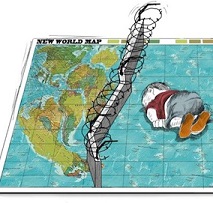
A Canadian manifesto for the planet and one another
Source: The Globe and Mail
This text is an abridged version of a declaration launched today in Toronto. To read it in full and to become a signatory visit leapmanifesto.org
We could live in a country powered entirely by renewable energy, woven together by accessible public transit, in which the opportunities of this transition are designed to eliminate racial and gender inequality. Caring for one another and caring for the planet could be the economy’s fastest growing sectors. Many more people could have higher-wage jobs with fewer work hours, leaving us ample time to enjoy our loved ones and flourish in our communities.



